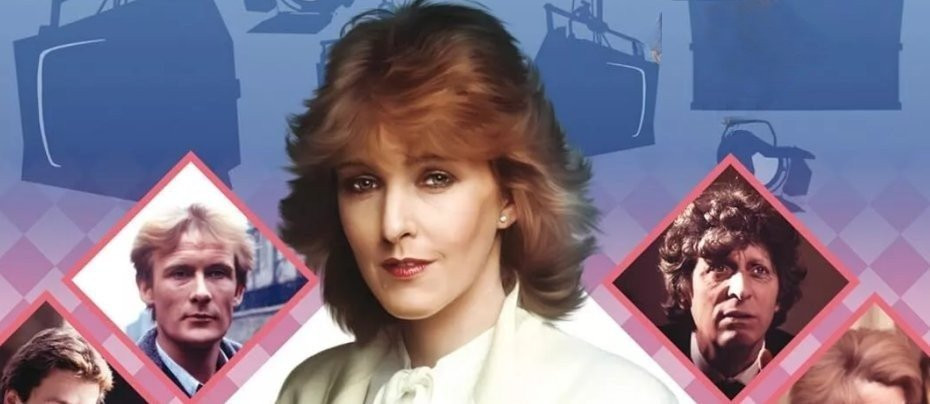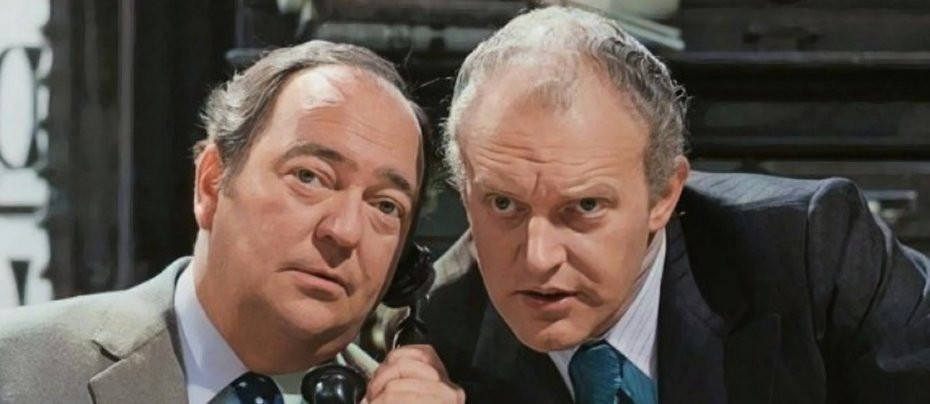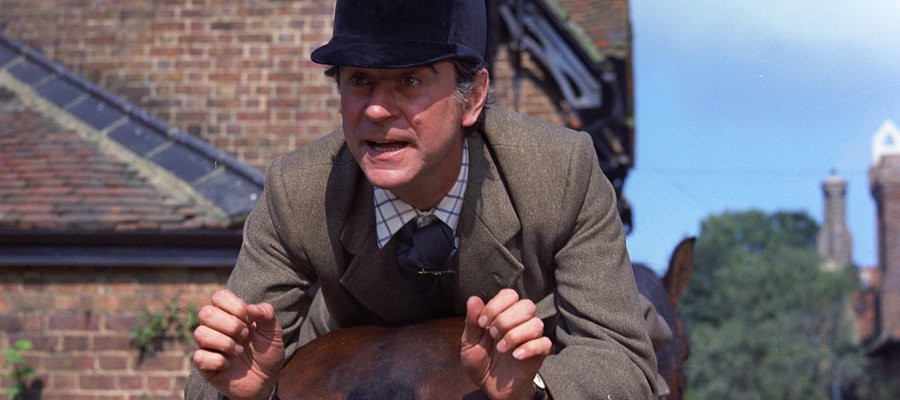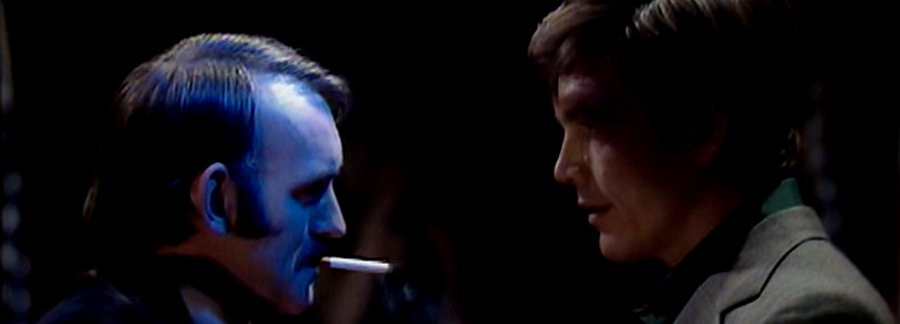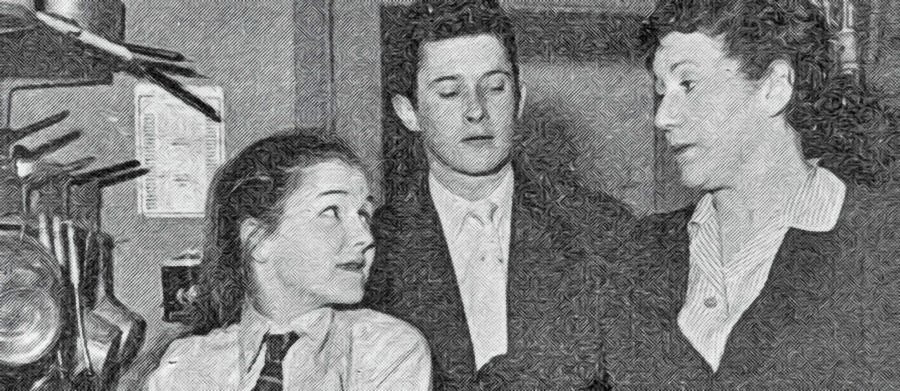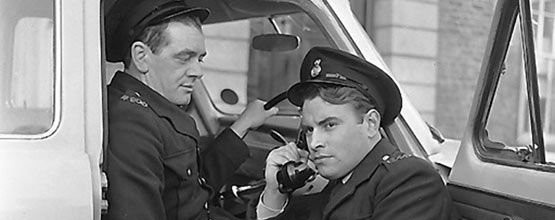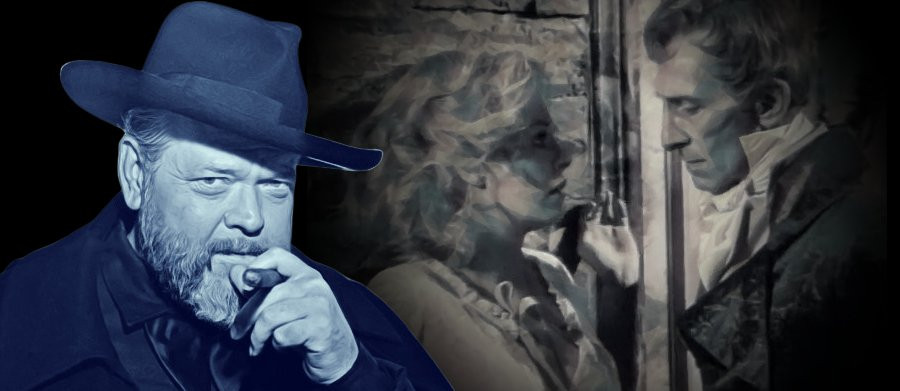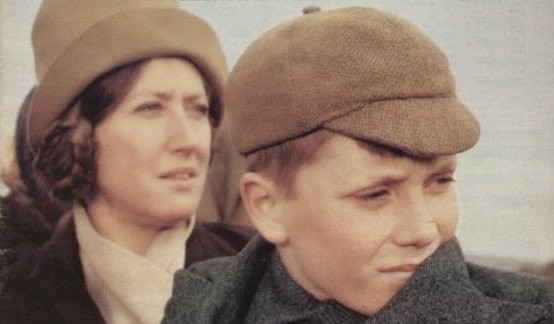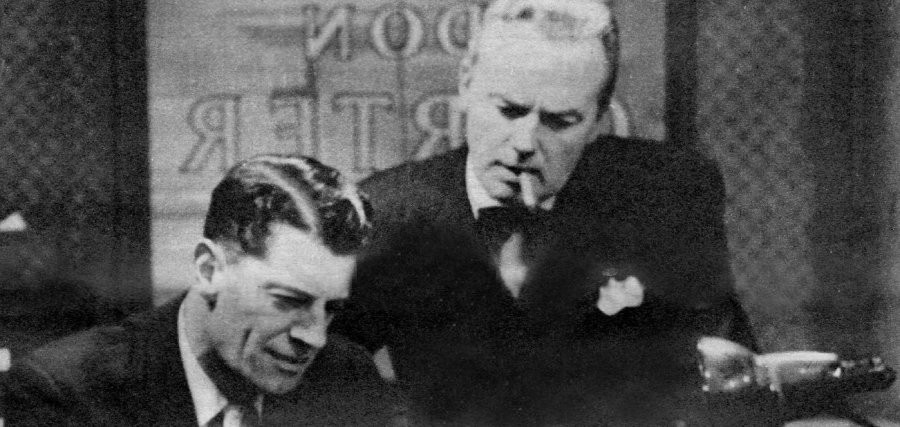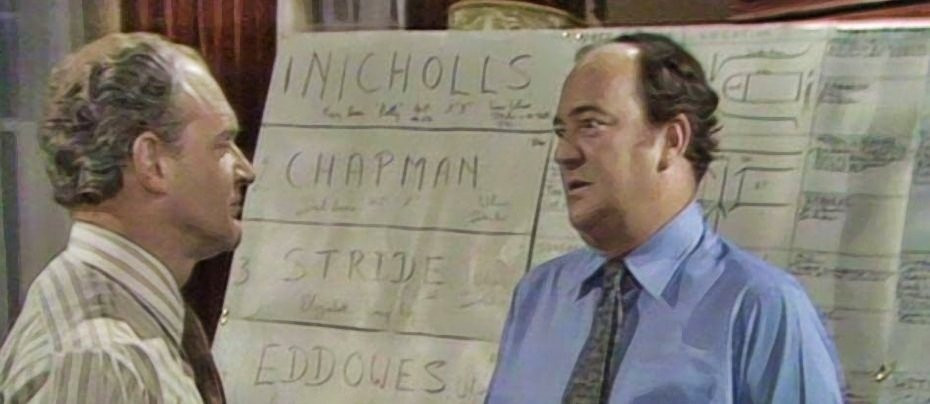
Jack The Ripper
1973 - United KingdomThe 1973 Jack the Ripper was a 6 part serial broadcast by the BBC on a weekly basis between July 13 and August 17. It was written by Elwyn Jones and John Lloyd, produced by Paul Bonner and Leonard Lewis, and directed by Leonard Lewis (episodes 1 and 4), Gilchrist Calder (episodes 2 and 5) and, very significantly, David Wickes (episodes 3 and 6). It featured Z Cars characters Barlow (Stratford Johns) and Watt (Frank Windsor) and led to a 1977 6 part spin-off Second Verdict where the two teamed up to work on further unsolved mysteries or miscarriages of justice.
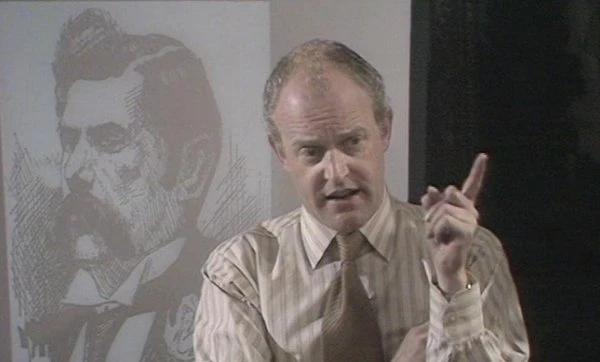
Described in the opening title sequence as a 'Documentary Investigation', the 1973 Jack the Ripper is an atypical Jack the Ripper production: with the exception of a few brief sequences, rather than being action based, it sees Barlow and Watt in a single room sifting through documents from the late nineteenth-century in attempt to deduce who the Ripper was.
These documents are brought to life through characters from the day with the camera closing in on their faces in an investigative manner. Despite the fact that all six episodes are given clear episode titles ('The First Two', 'Double Event', 'Butchery', 'Panic', 'Suspects', 'The Highest in the Land?'), the 1973 production can also at best be described as messy.

Narrative, with a beginning, middle and end, is meant to neatly order events, but the 1973 serial sees Barlow and Watt uncovering a range of contradictory theories about who the Ripper really was and denies the television viewer closure at the end. Therefore, it is atypical in that it does not dramatise one solution. The confusion generated by the serial echoes the confusion that was faced by the police of the day investigating the case, by Barlow and Watt and by the television viewer to the present. This also enables the serial to include theories which are not known to viewers as well as better known ones such as the Royal conspiracy, outlined in Steven Knight's book Jack the Ripper: The Final Solution and in the Sherlock Holmes film Murder by Decree (1979) and in From Hell (2001). For example, while the Jack the Ripper case is extremely well covered by film and television productions, 'The Cleveland Street Scandal' is not; at the end of the 1988 Euston Films production a selection of stills of characters from the drama come onto screen with a voice-over telling the television viewer what became of them, and over the still of Inspector Abberline it is simply revealed that he went on to investigate 'The Cleveland Street Scandal' before retiring.
The 1973 production, however, deals with 'The Cleveland Street Scandal' in more depth probing the possible connections between it and the Ripper murders. Furthermore, the 1973 production, filmed on video using indoor sets and therefore lacking the glossy look of the 1988 Jack the Ripper makes the production look dated. Many of these reasons may explain why the 1973 Jack the Ripper serial is often forgotten in a catalogue of Ripper productions; it was never repeated or released commercially on video or DVD so entries such as this are vital to put the production in the context of Ripper works and television history.

The 1973 Jack the Ripper is also noteworthy since it is an early example of director David Wickes clever use of visuals, something that would also be present in the 1988 Euston Films production. For example, in the third episode of the 1973 serial, the two time zones (1970s and 1888) are integrated visually: in the third episode, a woman declaring that the sight of a dead victim is one that she will take to her grave, puts a drink to her mouth, and at that very point there is a cut to Watt taking a drink away from his mouth. Later in that same episode there is a shot of a jury member taking a seat in court, immediately followed by one of Barlow rising. In the 1988 production there is a visual rhyme; clairvoyant Robert James Lees describes the murderer as being a two-faced person like two wheels of a coach overlapping and makes this movement with his hands, and later when John Netley tells Sergeant Godley that had he been born of higher status then he could have been a surgeon since he has the hands for it, he starts to move his hands, one over the other. Film and television are no strangers to visual rhymes but here we see a development in Wickes' work.
Seen this show? How do you rate it?
Seen this show? How do you rate it?
Published on December 24th, 2018. Written by Andrew O'Day (2014) for Television Heaven.


